COMAP Video Library
Use the power of video to explore the world of mathematics with COMAP’s award-winning video series.
COMAP videos have won dozens of academic and television awards, including the American Film and Video Award Gold Medal, and the Golden Hugo from the National Science Films Board.
COMAP developed the PBS television series and textbook For All Practical Purposes: An Introduction to Contemporary Mathematics.
COMAP developed two PBS television series Against All Odds: Inside Statistics and Algebra: In Simplest Terms.

Against All Odds: Inside Statistics
Picking up where the original Against All Odds left off in the 1980s, the new series maintains the same emphasis on “doing” statistics. Video modules take viewers on location to where people from all walks of life are using statistics in their work. Online materials allow viewers to practice and review what they’ve learned.
Each unit is based on a video module that introduces a statistical topic in real-world context. Complementing each video module are a Student Guide and Faculty Guide specific to the unit. These go into greater depth on the statistical concepts and contain valuable exercises and review material.
About the Host
Dr. Pardis Sabeti is a computational geneticist who uses statistics in her own work combing through the evolutionary record found in our genes. She’s developed algorithms to detect the genetic signatures of adaptation in humans and the microbial organisms that infect us. One part of her current research investigates the evolutionary history of the deadly hemorrhagic disease Lassa fever, which is widespread in West Africa. Learning more about the genomes of microbes that cause diseases like Lassa, Ebola, and malaria should help in the development of treatments and cures.
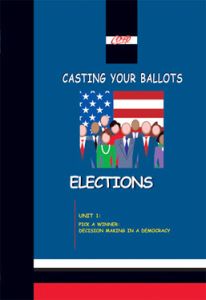
Elections: Pick a Winner: Decision Making in a Democracy
There are many situations in which we are required to make choices, either individually or collectively. For example, when we vote, we hope to achieve fair results. The mathematics of social choice can be used to characterize and compare different voting systems, and to measure what we mean by "fairness." What is a good way for a group to make a democratic decision?
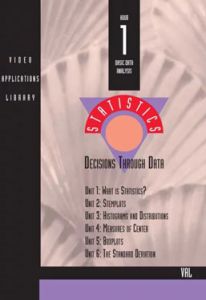
Statistics: Decisions Through Data
Statistics: Decisions Through Data is an introductory statistics course that unravels the statistical arguments behind surveys, polls, experiments, and product claims. Each episode begins with a documentary segment that engages students' interest, and then teaches skills to gather data, analyze patterns, and draw conclusions about real-world issues.
The videos are now available on our YouTube channel and on our website. Video support materials are available as part of COMAP full membership. Each video is accompanied by instructor’s notes, student exercises, group activities and quizzes.
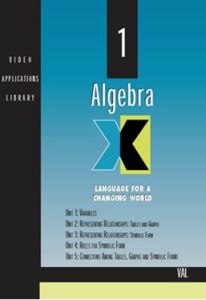
Algebra: Language for a Changing World
What algebra is used by police to calculate speeding fines? Can algebra provide a useful tool in helping our environment? Algebra: Language for a Changing World is an overview of the most essential early concepts in Algebra. Interesting real-world contexts and worked problems using real data introduce input and output variables, symbolic and graphical representation, order of operations, and linear relationships. This half-hour program includes a user's guide with reproducible student exercises and quizzes.
The videos are now available on our YouTube channel and on our website. Video support materials are available as part of COMAP full membership. Each video is accompanied by a user's guide with reproducible student exercises and quizzes.
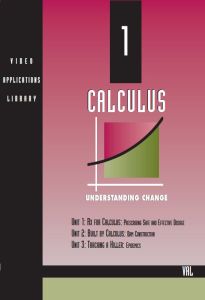
Calculus: Understanding Change
How do doctors and pharmacologists use calculus to prescribe drugs? How do engineers use area, volume, and pressure equations to design dams? Calculus: Understanding Change gives students a powerful demonstration of the critical role calculus plays in our lives.
The videos are now available on our YouTube channel and on our website. Video support materials are available as part of COMAP full membership. Each video is accompanied by a user's guide with reproducible student exercises and quizzes.
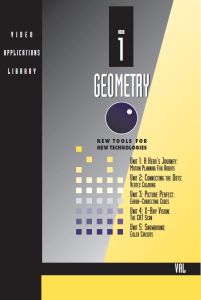
Geometry: New Tools For New Technologies - Hour One
How is geometry used to program a robot's movement? How do zoo planners use geometry to make habitats that are enjoyable and safe? Why do people who plan garbage pickups and snowplow routes need geometry? Geometry: New Tools for New Technologies I and II explores the exciting world of Geometry in the 20th century.
The videos are now available on our YouTube channel and on our website. Video support materials are available as part of COMAP full membership. Each video is accompanied by a user's guide with reproducible student exercises and quizzes.
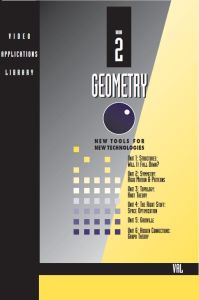
Geometry: New Tools For New Technologies - Hour Two
The six shows in this video series demonstrate contemporary geometry in action. In the videos, your students learn about applications to architecture, archaeology, DNA research, packaging design, fire station location, scheduling events, and others. The accompanying print materials give your students the opportunity to take part in the mathematical modeling of these situations. The videos range in length from about 8 minutes to about 11.5 minutes. The print materials for each video include a video viewing guide, a set of discussion questions, and one or two sets of exercises.
The videos are now available on our YouTube channel and on our website. Video support materials are available as part of COMAP full membership. Each video is accompanied by a user's guide with reproducible student exercises and quizzes.
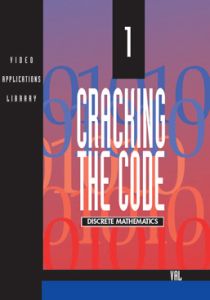
Discrete Math: Cracking the Code
What mathematical tools do network designers use to stop "hackers" from stealing valuable information? Discrete Mathematics: Cracking the Code is an introduction to the mathematics of electronic information transmission, including Universal Product Codes, as well as public-key cryptography, the most complete data security tool available. This video is ideal for computer science, math topics, or algebra classes.
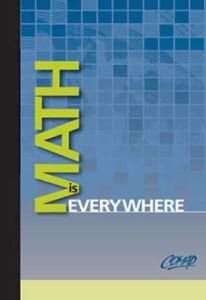
Mathematics is Everywhere
Mathematics is everywhere in our lives. It is in the CAT scans at a hospital. It is in the email and search engines of the Internet. It is in your hot dog, in the gasoline pump, in court, in the election booth, in your wallpaper, and in your fingerprints. There is no place, no object, in which math does not play a vital though often hidden part. Yes, mathematics is an important academic discipline, but it is much more — it is the tool for modeling our world. With all of the important and growing contemporary applications of mathematics, teachers especially must provide relevant and informed answers when their students ask, “What’s this stuff good for?”
To help meet this goal, COMAP has produced a series of short video pieces designed for high school students. The goal is to show, in an entertaining way, how mathematics affects their lives, and how mathematical models can help build our modern society.
For All Practical Purposes: An Introduction to Contemporary Mathematics
For All Practical Purposes: An Introduction to Contemporary Mathematics, the companion video to the best-selling text For All Practical Purposes, is an introductory liberal arts mathematics course shown nationally on PBS television stations and available on videotape.
Each of the 26 half-hour episodes uses real-life examples to help teach a basic understanding of mathematics and its relationship to other areas of study. Mathematical problem solving is shown to influence everything from the success of savvy entrepreneurs to the fairness of voting practices. Examples are pulled from management science, social science, design, and computer science.
Algebra: In Simplest Terms
A video instructional series on algebra for college and high school classrooms and adult learners; 26 half-hour video programs and coordinated books.
In this series, host Sol Garfunkel explains how algebra is used for solving real-world problems and clearly explains concepts that may baffle many students. Graphic illustrations and on-location examples help students connect mathematics to daily life. The series also has applications in geometry and calculus instruction. Algebra is also valuable for teachers seeking to review the subject matter.